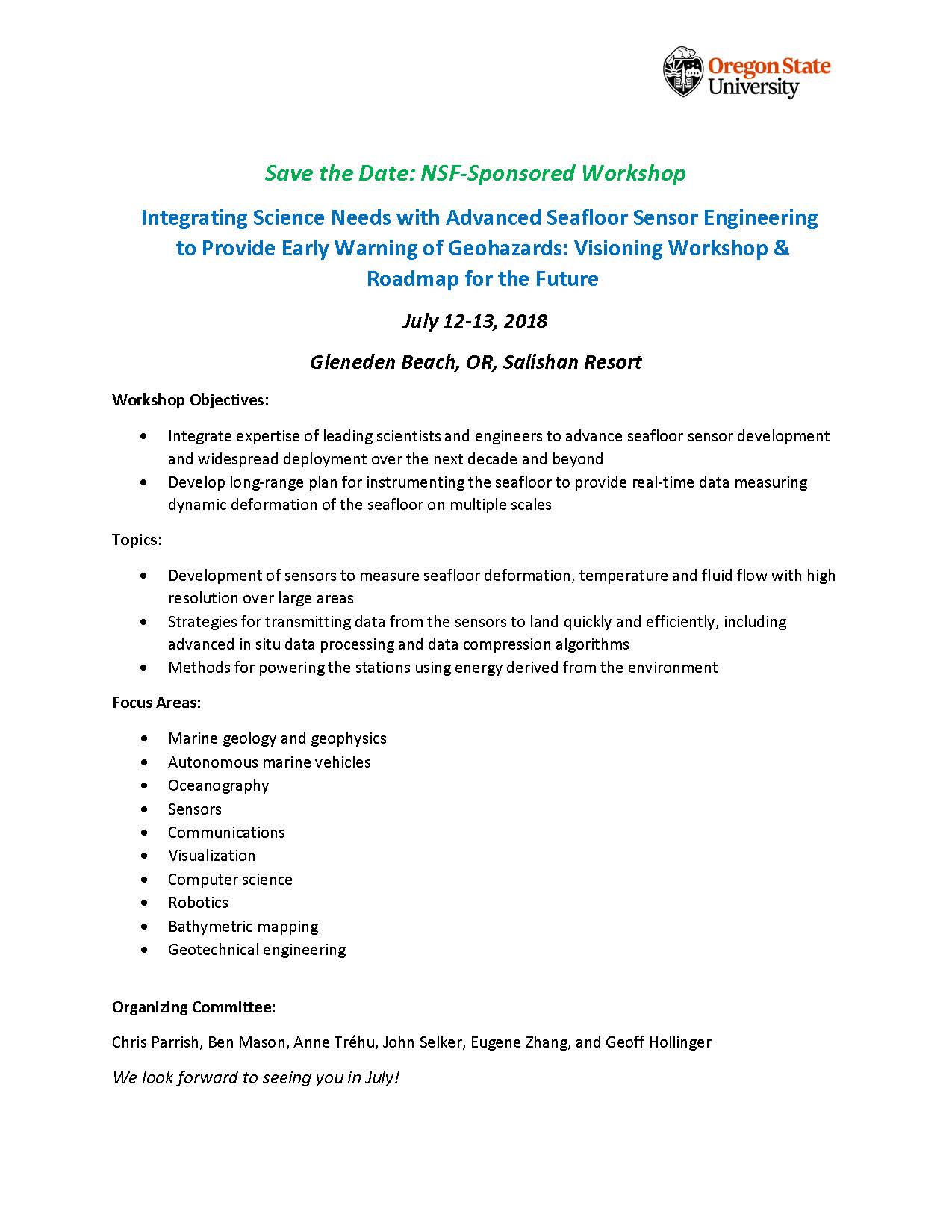Dear Colleagues:
NSF recently released a Dear Colleague Letter (18-061; 10 April 2018), regarding the provision of marine seismic capabilities. The DCL can be found at this website:
https://www.nsf.gov/publications/pub_summ.jsp?ods_key=nsf18061
As stated in the DCL, NSF is no longer accepting new proposals that require use of R/V Langseth. NSF will also begin developing the activities required for divesting from ownership of R/V Langseth, and it is anticipated that the end of field commitments using the vessel will be no later than mid-2020.
Marine seismic research that is conducted using the capabilities currently provided by R/V Langseth is a key component of the science portfolio supported by the Marine Geology and Geophysics (MG&G) Program within NSF’s Division of Ocean Sciences. Given that R/V Langseth will not be available after mid-2020, MG&G’s immediate goal is to define a path forward for providing long-offset, large-tuned source seismic capabilities for the US research community after R/V Langseth is no longer available.
In the near term, NSF will work with the Marine Seismic Research Oversight Committee (MSROC) of UNOLS to engage the broad community in this effort. A community workshop, to be held in the Fall of 2018, will be the first step in evaluating future research needs and identifying creative options for providing the necessary marine seismic infrastructure. The report from this workshop will help define a plan moving forward for community access to the platforms and tools required in order for NSF to again receive proposals to conduct seismic imaging over the full crustal scale. The workshop will also identify other potential community activities that may be needed to further develop these capabilities.
Throughout the transition to the post-Langseth environment, NSF will accept proposals that include large tuned source, long-offset data acquisition, but access to these capabilities will need to be coordinated by Principal Investigators as part of their proposals, such as through industry providers or international/institutional partners. NSF will also continue to accept proposals to use other seismic acquisition capabilities (e.g., portable multichannel seismic equipment, ocean-bottom seismometers, CHIRP systems, P-cable, etc.). Such capabilities could be provided by Academic Research Fleet (UNOLS) operators, institutions, international or commercial partners, or other means as identified by Principal Investigators, MSROC, or NSF.
Please contact us with any questions or suggestions.
The Marine Geology and Geophysics Program

